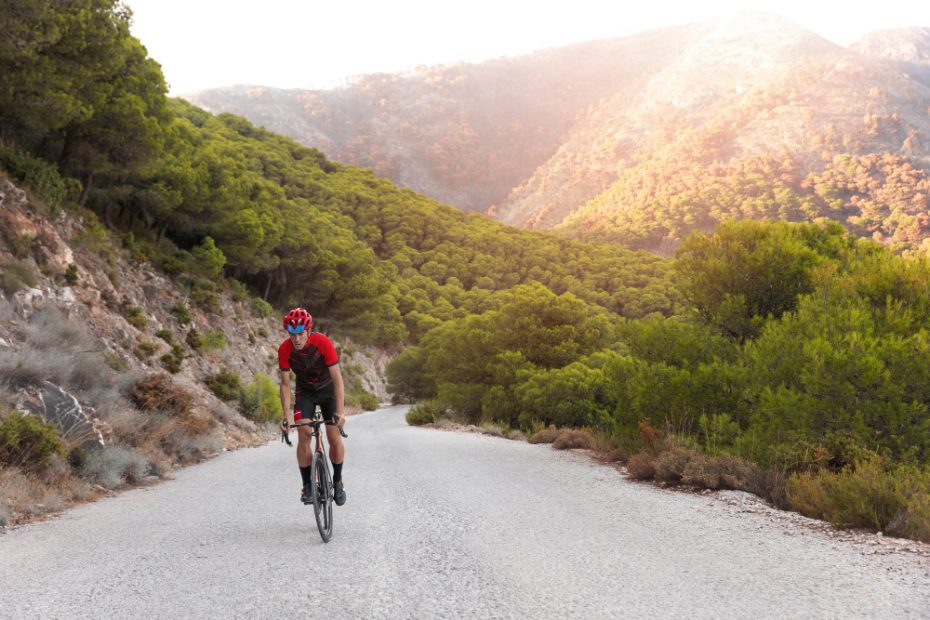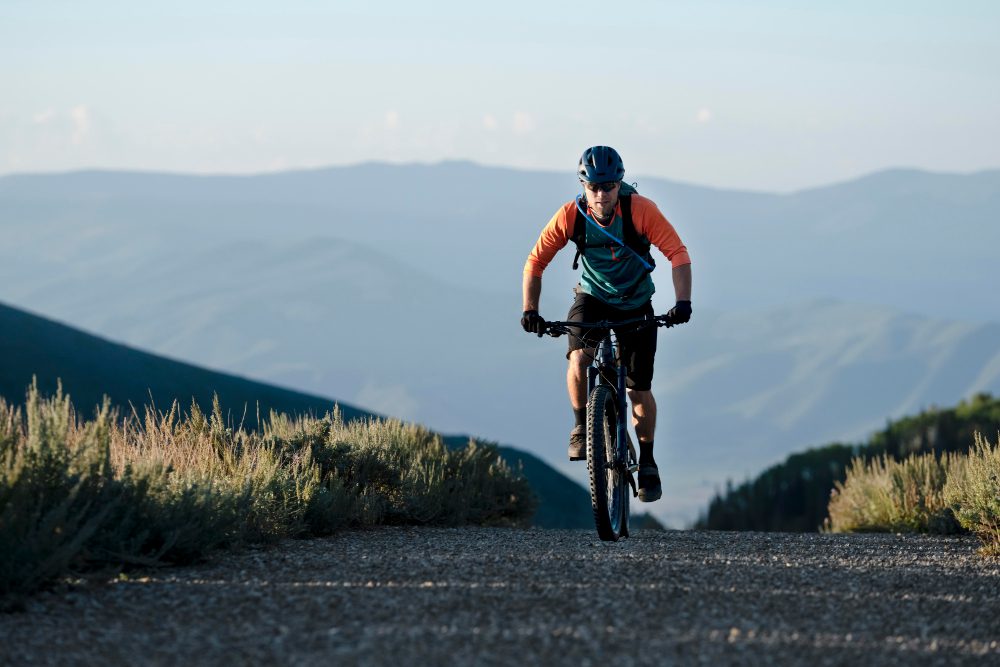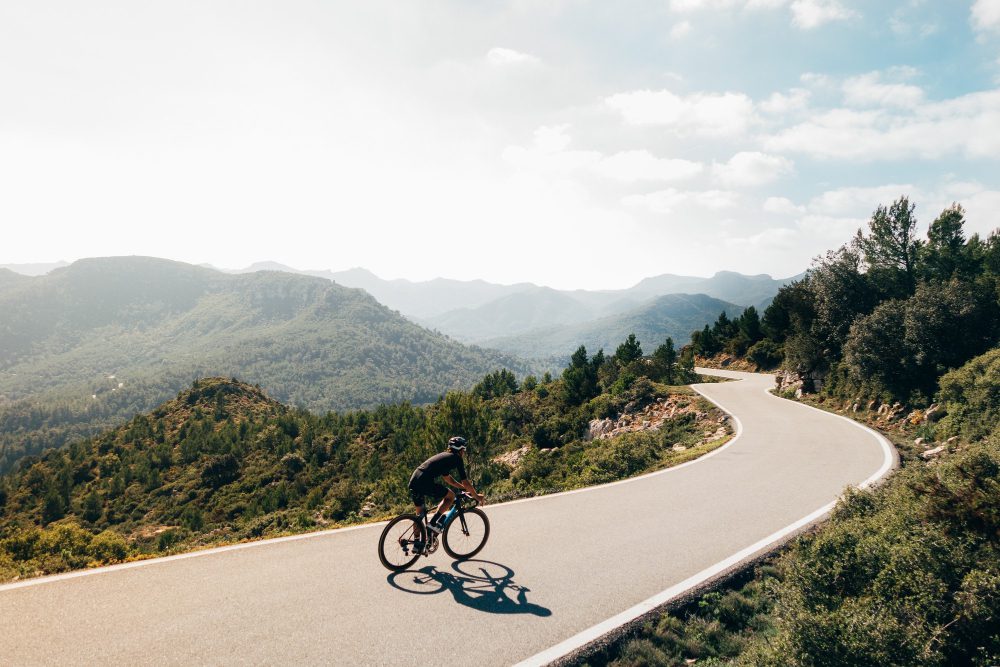How do you become an ultra cyclist?
Becoming an ultra cyclist is a challenging but rewarding endeavor that requires dedication, training, and the right mindset. Ultra cycling involves participating in long-distance cycling events that can range from 200 to 1,000 miles or more, pushing cyclists to their physical and mental limits.
Setting your goals
The first step in becoming an ultra cyclist is setting your goals. Decide what type of ultra cycling event you want to take on, whether it’s a multi-day race, a self-supported ride, or a timed event. Define your objectives and understand the level of commitment required to achieve them.
“Ultra cycling is not just about physical strength, but also mental fortitude and endurance.”
It’s important to have a clear understanding of your current fitness level and make realistic goals based on that. If you’re new to cycling or haven’t yet tackled long distances, start by gradually increasing your mileage and build up to longer rides.
Training and preparation
Ultra cycling requires a structured training plan to develop your endurance and stamina. Focus on building aerobic fitness by incorporating long rides into your training schedule. Gradually increase your mileage each week to prepare your body for the demands of ultra cycling.
Strength training is also essential to improve your overall performance and prevent injuries. Include exercises that target the muscles used in cycling, such as your legs, core, and upper body. Cross-training activities like swimming or yoga can complement your cycling training.
Nutrition and hydration
Proper nutrition and hydration are crucial for ultra cyclists to sustain their energy levels throughout long rides. Fueling your body with a balanced diet rich in carbohydrates, proteins, and fats will support your training and recovery.
Hydration is equally important. Make sure to drink enough water before, during, and after your rides. Consider using electrolyte replacement drinks to replenish the electrolytes lost through sweat during intense efforts.
Equipment and bike setup
Investing in the right equipment and ensuring proper bike setup is essential for a comfortable and efficient ride. A well-fitted bike that suits your body proportions and riding style will enhance your performance and help prevent injuries.
Clothing choice is also crucial for ultra cycling. Opt for moisture-wicking and breathable fabrics that will keep you dry and comfortable during long hours on the bike. Don’t forget to wear appropriate protective gear, such as a helmet and padded shorts.
Mental preparation
Ultra cycling pushes your mental boundaries as much as your physical limits. Mental strength and resilience are vital for managing fatigue, boredom, and discomfort during long rides. Practice mental strategies, such as visualization and positive self-talk, to help you stay focused and motivated.
“Remember that ultra cycling is a journey, and every challenge you overcome will make you stronger.”
Joining cycling communities
Connecting with other cyclists who share your passion for ultra cycling can provide valuable support and knowledge. Consider joining local cycling clubs or online communities where you can find training partners, exchange tips, and learn from experienced riders.
Attending cycling events and races can also help you gain insights into the world of ultra cycling and inspire you to reach new heights.
In summary, becoming an ultra cyclist requires a combination of physical training, mental preparation, proper nutrition, and the right equipment. With determination and perseverance, you can embark on this challenging but rewarding journey and achieve your goals as an ultra cyclist.
How to cycle 300km in one day?
Cycling 300km in a single day is no easy feat, but with the right preparation and mindset, it can be an achievable goal. Whether you’re a seasoned cyclist or a newbie looking for a challenge, here are some tips to help you conquer this endurance test.
1. Train consistently
To build up the necessary stamina and endurance, it’s important to train consistently. Gradually increase your mileage in the weeks leading up to the big day, making sure to include longer rides of at least 150-200km to condition your body for the distance.
2. Plan your route
Before embarking on your 300km journey, plan your route carefully. Consider factors such as terrain, traffic, and facilities along the way. Having a clear route map or navigation system will help you stay on track and avoid unnecessary detours.
3. Fuel your body
Nutrition plays a crucial role in long-distance cycling. Consume a balanced diet leading up to the ride, and have a hearty breakfast on the morning of the event. During the ride, stay hydrated and refuel regularly with energy-rich snacks such as bananas, energy bars, and gels.
4. Pace yourself
Riding 300km in a day is not a race, so it’s important to pace yourself. Start at a comfortable speed and maintain a steady rhythm throughout the ride. Remember to take short breaks every couple of hours to rest, stretch, and re-energize.
5. Mental preparation
Ultra cycling is both physically and mentally demanding. Prepare yourself mentally by setting achievable goals and visualizing success. Stay focused and motivated, especially during challenging moments. Your mindset can make a significant difference in completing the distance.
6. Pack essentials
Ensure you have all the essentials for a successful ride. Pack spare inner tubes, a puncture repair kit, tools, a bike pump, and extra layers of clothing to cater to changing weather conditions. A comfortable saddle and padded shorts are also recommended for long hours on the bike.
7. Ride with others
Consider joining a cycling group or participating in organized rides. Riding with others not only provides camaraderie but also offers safety in numbers. You can learn from experienced cyclists and benefit from their collective knowledge and expertise.
8. Enjoy the journey
While the focus may be on completing the 300km distance, don’t forget to enjoy the journey. Take in the scenic views, appreciate the sense of accomplishment, and celebrate your milestones along the way. Remember, it’s not just about reaching the destination, but also about embracing the experience.
9. Post-ride recovery
After completing such a grueling challenge, it’s important to prioritize post-ride recovery. Stretch, hydrate, and refuel your body with nutritious food. Treat yourself to a well-deserved rest and allow your muscles time to recover before jumping back into intense training sessions.
10. Set new goals
Completing a 300km ride is a significant achievement. Once you’ve accomplished this feat, it’s time to set new goals. Whether it’s tackling longer distances, conquering more challenging terrain, or participating in an ultra-cycling event, keep pushing your boundaries and embracing new cycling adventures.
Remember, becoming an ultra cyclist is a journey that starts with small steps and gradually builds up. With determination, dedication, and the right mindset, you can conquer any challenge on two wheels.



